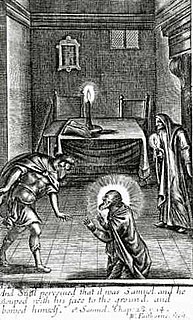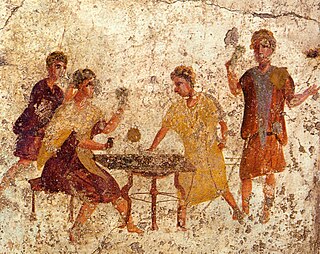
Astrology is a pseudoscience that claims to divine information about human affairs and terrestrial events by studying the movements and relative positions of celestial objects. Astrology has been dated to at least the 2nd millennium BCE, and has its roots in calendrical systems used to predict seasonal shifts and to interpret celestial cycles as signs of divine communications. Many cultures have attached importance to astronomical events, and some—such as the Hindus, Chinese, and the Maya—developed elaborate systems for predicting terrestrial events from celestial observations. Western astrology, one of the oldest astrological systems still in use, can trace its roots to 19th–17th century BCE Mesopotamia, from where it spread to Ancient Greece, Rome, the Arab world and eventually Central and Western Europe. Contemporary Western astrology is often associated with systems of horoscopes that purport to explain aspects of a person's personality and predict significant events in their lives based on the positions of celestial objects; the majority of professional astrologers rely on such systems.

Divination, or "to be inspired by a god", is the attempt to gain insight into a question or situation by way of an occultic, standardized process or ritual. Used in various forms throughout history, diviners ascertain their interpretations of how a querent should proceed by reading signs, events, or omens, or through alleged contact with a supernatural agency.

Probability is the branch of mathematics concerning numerical descriptions of how likely an event is to occur or how likely it is that a proposition is true. Probability is a number between 0 and 1, where, roughly speaking, 0 indicates impossibility and 1 indicates certainty. The higher the probability of an event, the more likely it is that the event will occur. A simple example is the tossing of a fair (unbiased) coin. Since the coin is fair, the two outcomes are both equally probable; the probability of "heads" equals the probability of "tails"; and since no other outcomes are possible, the probability of either "heads" or "tails" is 1/2.

The supernatural are the entities, places and events that are supposed to fall outside of the scope of scientific understanding of the laws of nature but nevertheless are argued by believers to exist. Examples include angels, gods and deities, and spirits, as well as human abilities like magic, telekinesis, precognition and extrasensory perception.

Necromancy is a practice of magic involving communication with the dead – either by summoning their spirits as apparitions, visions or raising them bodily – for the purpose of divination, imparting the means to foretell future events, discover hidden knowledge, to bring someone back from the dead, or to use the dead as a weapon. Sometimes referred to as "Death Magic", the term may also sometimes be used in a more general sense to refer to black magic or witchcraft.

Cartomancy is fortune-telling or divination using a deck of cards. Forms of cartomancy appeared soon after playing cards were first introduced into Europe in the 14th century. Practitioners of cartomancy are generally known as cartomancers, card readers, or simply readers.
Axinomancy is one of several obscure methods of divination using an axe, hatchet, or (rarely) a saw. Most of the methods involve throwing an axe into the ground, or swinging it into a tree, and interpreting the direction of the handle or the quivering of the blade. A form of this is axiomancy, this is when the quivering of the blade of an axe that has been thrust into a wooden table is interpreted by the diviner.

Alomancy, also called Adromancy, ydromancie, idromancie, and halomancy, is an ancient form of divination. Similar to many other forms of divination, the diviner casts salt crystals into the air and interprets the patterns as it falls to the ground or travels through the air. The diviner can also interpret patterns formed from the residue of a salt solution as it evaporates in the bowl. The exact interpretations are unknown, but it probably follows a similar method to aleuromancy.
Destiny, sometimes referred to as fate, is a predetermined course of events. It may be conceived as a predetermined future, whether in general or of an individual.

Scrying, also known by various names such as "seeing" or "peeping", is the practice of looking into a suitable medium in the hope of detecting significant messages or visions. The objective might be personal guidance, prophecy, revelation, or inspiration, but down the ages, scrying in various forms also has been a prominent means of divination or fortune-telling. It remains popular in occult circles, discussed in many media, both modern and centuries old.
Oneiromancy is a form of divination based upon dreams; it is a system of dream interpretation that uses dreams to predict the future. It is dismissed by the scientific community and skeptics as being superstition; experiments do not support the idea that dreams predict the future beyond the expectations of the person dreaming. Occasionally, the dreamer feels as if he or she is transported to another time or place, proving they are in fact providing divine information upon their return.

Tasseography (also known as Tasseomancy or Tassology, is a divination or fortune-telling method that interprets patterns in tea leaves, coffee grounds, or wine sediments. In more modern practice, residues of other beverages such as hot chocolate, beer or juice can also be read and interpreted.
Lithomancy is a form of divination by which the future is told using stones or the reflected light from the stones. The practice is most popular in the British Isles.

Lampadomancy is a form of divination using a single oil lamp or a torch flame.

There is some evidence that, in addition to being a writing system, runes historically served purposes of magic. This is the case from earliest epigraphic evidence of the Roman to Germanic Iron Age, with non-linguistic inscriptions and the alu word. An erilaz appears to have been a person versed in runes, including their magic applications.

A superstition is any belief or practice based upon one's trust in luck or other irrational, unscientific, or supernatural forces. Often, it arises from ignorance, a misunderstanding of science or causality, a belief in fate or magic, or fear of that which is unknown. It is commonly applied to beliefs and practices surrounding luck, prophecy, and certain spiritual beings, particularly the belief that future events can be foretold by specific (apparently) unrelated prior events. The word superstition is often used to refer to a religion not practiced by the majority of a given society regardless of whether the prevailing religion contains alleged superstitions.
Capnomancy signifies a method of divination using smoke. This is done by looking at the movements of the smoke after a fire has been made. A thin, straight plume of smoke is thought to indicate a good omen whereas the opposite is thought of large plumes of smoke. If the smoke touches the ground, this is thought to be a sign that immediate action must be taken to avoid catastrophe.

The I Ching or Yi Jing, usually translated as Book of Changes or Classic of Changes, is an ancient Chinese divination text and the oldest of the Chinese classics. With more than two and a half millennia's worth of commentary and interpretation, the I Ching is an influential text read throughout the world, providing inspiration to the worlds of religion, philosophy, literature, and art. Originally a divination manual in the Western Zhou period (1000–750 BC), over the course of the Warring States period and early imperial period (500–200 BC) it was transformed into a cosmological text with a series of philosophical commentaries known as the "Ten Wings". After becoming part of the Five Classics in the 2nd century BC, the I Ching was the subject of scholarly commentary and the basis for divination practice for centuries across the Far East, and eventually took on an influential role in Western understanding of Eastern thought.

In ancient history, the concepts of chance and randomness were intertwined with that of fate. Many ancient peoples threw dice to determine fate, and this later evolved into games of chance. At the same time, most ancient cultures used various methods of divination to attempt to circumvent randomness and fate.

African divination is divination practiced by cultures of Africa.














